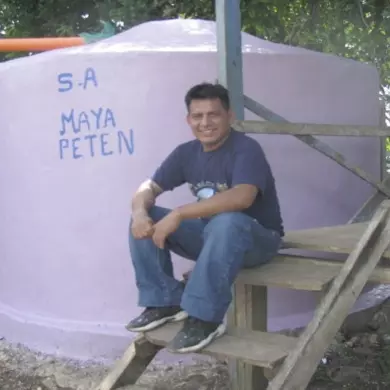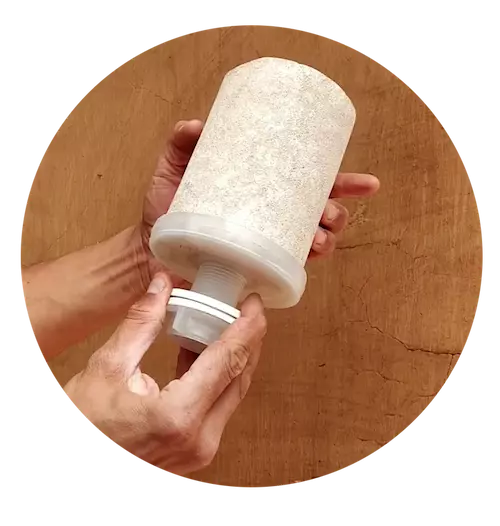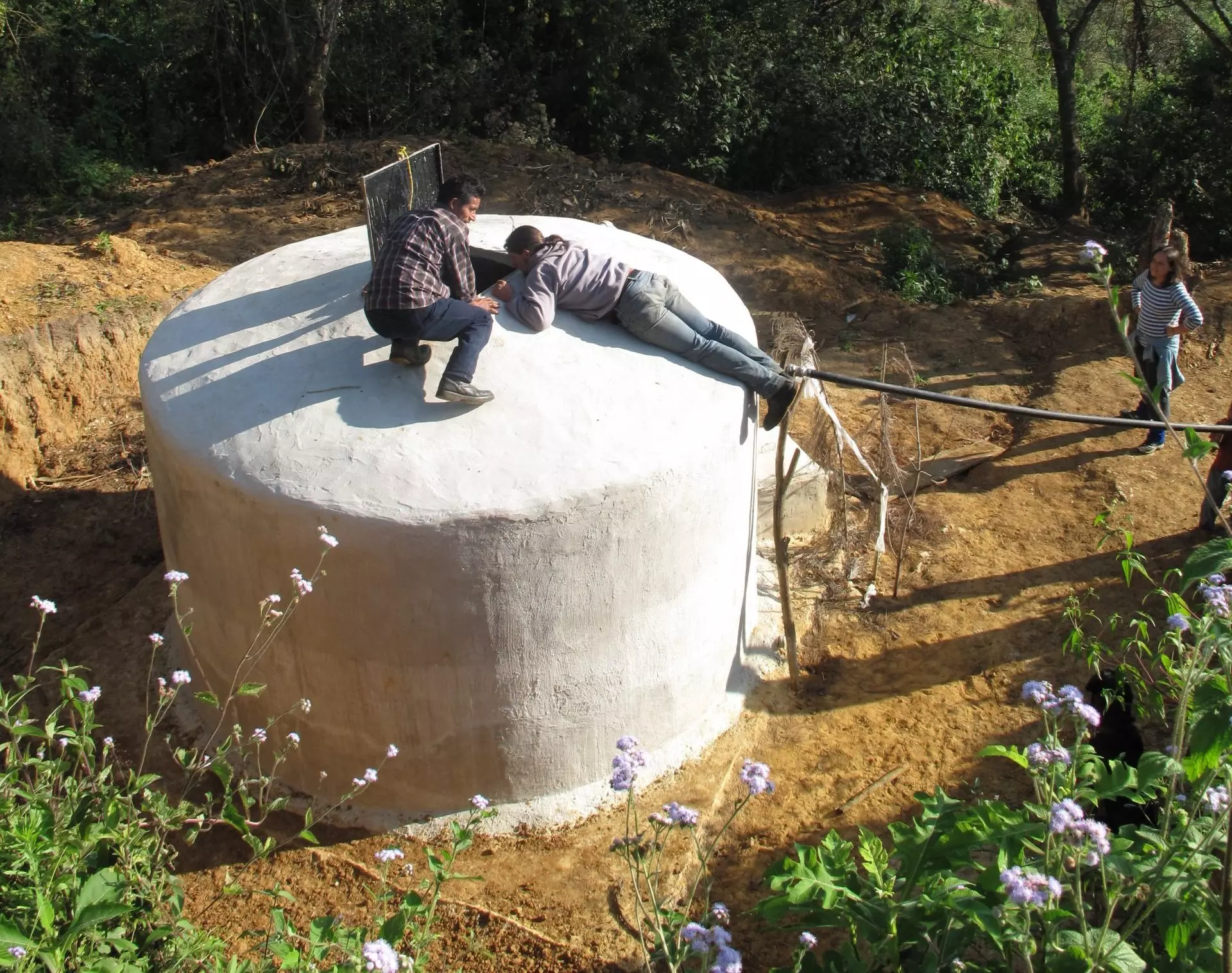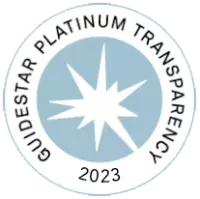Clean drinking water is simply life saving and life changing, as its presence drastically improves a community’s health, as well as making possible educational and economic opportunities. Introducing clean water to a community can reduce by 90% instances of diarrhea, a leading cause of mortality of children under five, among so many other health benefits.
Building community water systems and water filters is much more than the health benefits they provide. Environmental Health team member in Guatemala, Silvestre, who is also a health promoter practitioner and artisan, shared the following reflection after building a water tank at a school in a community:
 “People worked really hard. We talked about how organizing this way was the best thing for their families and that they would be able to say how they participated in the construction of this water tank. Each day, between 8 and 12 people would come to help. At several moments during our work, people would tell us how this was the first time that they had worked in this way. It was not just the building of the tanks, but the beautiful way in which people were organizing as a community.”
“People worked really hard. We talked about how organizing this way was the best thing for their families and that they would be able to say how they participated in the construction of this water tank. Each day, between 8 and 12 people would come to help. At several moments during our work, people would tell us how this was the first time that they had worked in this way. It was not just the building of the tanks, but the beautiful way in which people were organizing as a community.”
 Another meaningful success in our history has been the huge strides made, among others, by field team members Bruno and Laila in Chiapas, Mexico as they initiated and designed a water filter program for community members who were living without access to clean drinking water. Families receive water filters made with locally available materials including a ceramic filter core that eliminates bacteria and pathogens by slow filtration, having a 99.99% disinfection and purification rate.
Another meaningful success in our history has been the huge strides made, among others, by field team members Bruno and Laila in Chiapas, Mexico as they initiated and designed a water filter program for community members who were living without access to clean drinking water. Families receive water filters made with locally available materials including a ceramic filter core that eliminates bacteria and pathogens by slow filtration, having a 99.99% disinfection and purification rate.

Since 1994, Concern America has since built clean water systems and provided access to clean water to over 15,000 people in more than 40 communities in Chiapas. As part of Concern America’s 50th anniversary reflections, Bruno shared his thoughts on this work and where he sees support needed in the future to continue to create change:
“The best memories and I bring with me is the moments that I see all the people in the community, you see the people smiling or crying every time they see the water come through the tap, wash themselves, cook, or not be obligated to walk long distances to carry the water for their use everyday.”
Laila echoes this focus on training and building local capacity to carry on the work:
“A need we have in Mexico, from urban to rural spaces, is clean water. It’s a necessity that is not free as in the states, so we would really like to form in the near future a local team that will continue this work, that can be very active in implementing filters and learning how to do the gravity flow water systems. This is really the way that we feel we can best leave a little grain of sand of all of our time here, to have local folks trained in those topics.”


